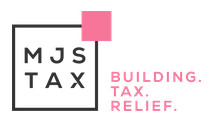Written by Michael Brownsdon, a multi-qualified Capital Allowances specialist from MJS Tax.
If you purchased a house or other property in the last four years, you may have paid too much Stamp Duty Land Tax, and if you have, you could claim a Stamp Duty Land Tax refund from HMRC.
A Stamp Duty Overview (Stamp Duty Land Tax = SDLT)
SDLT is a self-assessed tax, based on a property’s value. Since its introduction in 2003, frequent adjustments in legislation have made SDLT one of the least understood and complex taxes.
Part of the problem is that HMRC’s SDLT calculator does not take into account all of the reliefs and allowances applicable. But arguably, the biggest issue Is that conveyancers, who would usually submit your SDLT return on your behalf when the purchase completes, are not tax specialists. It means they can miss opportunities to reduce the payment due.
SDLT is only paid on land and buildings, not on fittings and contents. So, if your purchase included any fittings, either inside or outside of the property, you may have paid too much tax. Here’s the problem.
If you paid spur without any deduction for the value of the fittings, then you definitely overpaid SDLT.
If you simply negotiated a price with the vendor, or you used an estimated second hand value of the fittings, you will not have followed the correct valuation process, and you will probably have paid too much SDLT and be entitled to a Stamp Duty Land Tax Refund.
The right way to value the fittings adheres to the relevant legislation, meeting the criteria set out by the Valuation Office Agency. The correct valuation method takes into consideration the property and land values, and this recalculation often results in a significant tax refund.
On average, you can expect to receive a refund of between 5% and 15% of the full SDLT paid.
Ideally, you should make a claim for a refund within 12 months of the purchase date. It is possible to make a claim within four years, but the process is more complex after the first year.
The SDLT Review
I am a regulated Chartered Tax Surveyor, familiar with the relevant legislation. When you have formally engaged me, I will ask you to provide a few documents to identify and value the qualifying items you bought with the property. It may
be necessary to have either a virtual or a physical inspection of the property.
Once I have the relevant information, I will produce a fully disclosed report confirming the revised ‘chargeable consideration: and the refund to which you’re entitled. The report will be sent to the SDLT office and you should normally receive your refund in about four to six weeks.
As part of your review, I will check if your property is eligible for any of the SDLT reliefs and allowances, as they are often missed. They fall into five categories:
- You initially paid a deposit or a reservation fee, with the balance of the purchase price paid later.
- Within your property is self-contained living accommodation with its own separate entrance, for example: an annexe; granny flat; studio.
- You bought an uninhabitable property on which you paid spur, or you paid a 3% second property surcharge selling the original property within three years.
- There is commercial business associated with the property, for example: a workshop; stables; rented land.
- There are elements not linked to residential use, for example: wayleave; licence; fields; parkland; woodland.
Depending on the property value, any one of these areas can generate a refund of up to 50% or more of the full SDLT paid.
SDIT for residential property is charged on a sliding scale, based on the value of the property:
£O to £125,000 : 0%
£125,001 to £250,000 : 2%
£250,001 to £925,000 : 5%
£925,001 to £1,500,000 : 10%
Over £1,500,000 : 12%
If you own a second property, there is a 3% surcharge in addition to these figures.
To take advantage of a review, your purchase price would have been at least £l million. It means you will have paid SDLT at the highest rates, making the process financially viable.
Could you be entitled to a Stamp Duty Land Tax Refund? Find out more at:








